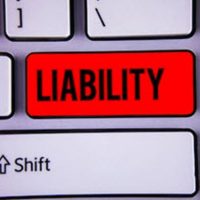A Child Was Injured On My Property. What Do I Do?

A property or business owner in Florida must observe certain criteria with regard to the safety of their visitors. This goes particularly for children, as they are seen under the law as less able to appreciate the potential danger of their actions. If a child is injured in your business or on your land, you may wind up on the legal hook in terms of being liable for their injuries, even if you would not have necessarily been liable had an adult been injured in the same way. Consulting an experienced attorney on the issue can help you understand your options.
Will They Sue?
A minor child cannot, by law, sue anyone on their own behalf. They must be represented by what the law calls a ‘next friend’ – most often, their parent or guardian – who can file the appropriate lawsuit if they believe that the defendant was negligent. However, even if there is a valid case to be brought, many children decline to participate due to trauma. For example, if a child is stuck somewhere and freed only after a period of time, they may not want to relive the episode, though they would have to in filing suit.
Even if the family does ultimately decide to file suit, Florida law only has a four-year statute of limitations, meaning that no more than four years can pass between the child’s injury and any suit being filed. Many people simply do not know this, or move too slowly to file suit, or think that because the victim is a child, the statute of limitations will somehow be tolled (held in abeyance); unless the child’s injury comes as a result of medical malpractice, the statute of limitations does not toll except in extremely rare exceptions.
Did You Exercise Due Care?
If the family has filed suit against you, it will likely be under a theory of negligence referred to as premises liability. Premises liability establishes a duty of care on the part of a property owner or a business owner, requiring them to take steps to make their property safe for those who visit. That said, Florida law recognizes three different types of visitors, all owed a different duty of care. Invitees, who visit for some business of the owner’s (such as a customer in a business) are owed the highest duty of care. The other types are licensees (people who visit for their own reasons, like door-to-door salesmen) and trespassers.
Children can fit into any of these categories, depending on the situation in which they visited your land or your business. In addition, there is a doctrine called the attractive nuisance rule, where the category does not matter, that only applies to children. In Florida, an attractive nuisance is an object or fixture on land that may draw the attention of minor children and cause injury or death. The state legislature actually codified several examples, deeming them attractive nuisances as a matter of law (in other words, they do not have to be established as attractive nuisances; they are already). You may be liable for a child’s injuries if an attractive nuisance is involved, even if the child was trespassing.
Contact A Tampa Child Injury Attorney
Whether a child has been injured on your land, or your child has been injured due to someone else’s negligence, consulting a Tampa child injury lawyer is an important step in seeking compensation for what you have been through. The Rinaldo Law Group can offer knowledgeable and compassionate representation during what can be a frightening time. Call our offices today for a free consultation.
Resource:
leg.state.fl.us/Statutes/index.cfm?App_mode=Display_Statute&URL=0000-0099/0095/Sections/0095.11.html












